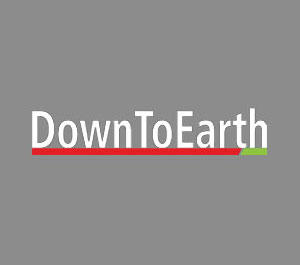Excreta Matters Newsletter
|
|||||||||||||||||||||||||||||||
|
|||||||||||||||||||||||||||||||
Down to Earth

November 15, 2017

November 15, 2017
.jpg)
November 15, 2017

November 15, 2017
.jpg)
November 15, 2017
.jpg)
November 15, 2017
.jpg)
November 15, 2017

November 15, 2017

November 15, 2017

November 15, 2017

November 15, 2017
| Other News |
| Water Pollution: |
| Delhi, U.P. asked to file affidavits on Yamuna debris |
|
Date: 24/05/2013 |
| Holy Ganga now a poll plank for netas |
|
Date: 18/05/2013 |
| Weekly monitoring of Ganga, Yamuna water |
|
Date: 18/05/2013 |
| Amidst complaints, ministry orders testing of bottled water |
|
Date: 13/05/2013 |
| Water Resources: |
| Punjab, others oppose River Basin Authority |
|
Date: 30/05/2013 |
| Cauvery issue: State seeks damages from Karnataka |
|
Date: 29/05/2013 |
| Watermarking data |
|
Date: 23/05/2013 |
| Panel advises revision of rain harvesting policy |
|
Date: 15/05/2013 |
| Water Supply |
| Four lakh new meters installed in last six years, says Delhi Jal Board |
|
31/05/2013 The Delhi Jal Board (DJB) has refuted the claims of NGO Citizen’s Front for Water Democracy that the water utility is procuring more meters than it needs to. |
| Haryana giving Delhi more water than its share, says Hooda |
|
Date: 29/05/2013 |
| Delhi asks for expediting construction of dams |
|
Date: 29/05/2013 |
| Over 500 water samples found unsafe |
|
Date: 18/05/2013 |
| Sanitation |
| Govt's new rule: Toilets mandatory in Indira AwasYojna houses |
|
Date: 18/05/2013 |
| 750 residents, but no toilet in this west Delhi slum |
|
Date: 17/05/2013 |
| 2.4bn will lack improved sanitation in 2015: WHO |
|
Date: 14/05/2013 |
| Superstitions wash out sanitation here |
|
Date: 06/05/2013 |
| Solid Waste |
| Ten new prospective landfill sites identified for Delhi |
|
Date: 30/05/2013 |
| Joint Indo-Nepal effort to clean Mount Everest |
|
Date: 28/05/2013 |
| Top hospitals flout waste disposal rules |
|
Date: 23/05/2013 |
| Have a civic problem? Click a photo |
|
Date: 27/05/2013 |
| Forthcoming events |
| Conferences/Events in India |
| International Conference on Water, Wastewater and Isotope Hydrology
25th – 27th July 2013,IC-WWISH, UVCE Bangalore University, Bangalore, India. |
| Annual Conference on Water & Waste Water Management in India,
26th -27th June 2013, Le Meridian, New Delhi, India. |
| National Conference on Recent Advances in Membrane Processes for Water Treatment Conference
26th to 27th July 2013, Coimbatore, Tamilnadu, India. |
| International Conference on Green Technology Conference 26th to 27th July 2013 Thanjavur, Tamilnadu, India. |
| International Conferences/Events |
| ACSEE 2013 - The Third Asian Conference on Sustainability, Energy and the Environment Conference 6th to 9th June 2013, Osaka, Japan. |
| IWA 5th Eastern European Young and Senior Water Professionals Conference 26th to 28th June 2013, Kiev, Ukraine . |
| Asia Pacific Water Recycling Conference 1st to 4th July 2013 Brisbane, Australia. |
| 36th WEDC International Conference: Delivering Water, Sanitation and Hygiene Services in an Uncertain Environment
1-5 July 2013, Egerton University, Nakuru, Kenya. |






Share this article